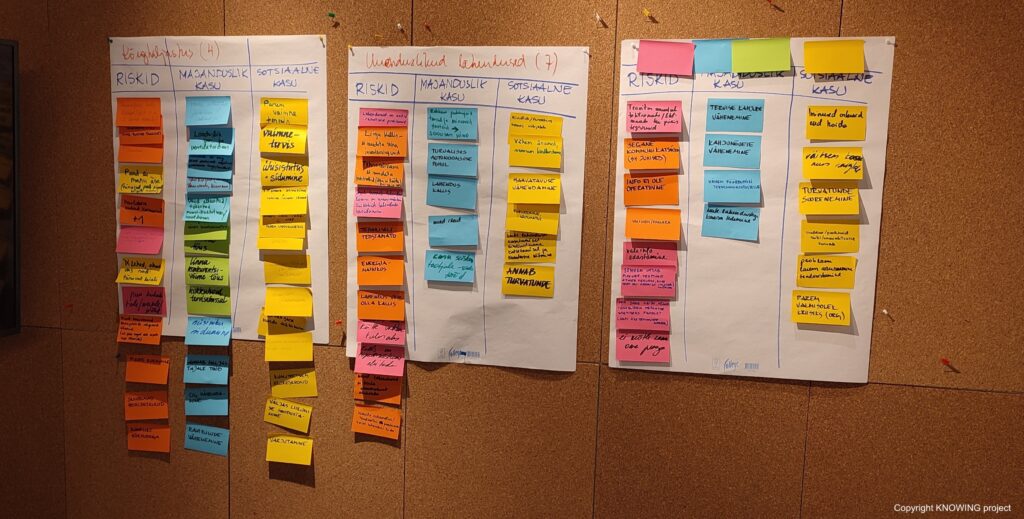
Discover news on disaster risk reduction from three European projects
Collective action is the key to early-warning systems since it can limit and even prevent them, as underlined by University College London (UCL) in “Disaster early-warning systems can succeed — but collective action is needed”. Local authorities in Tallinn and South Westphalia step out to make their territory more sustainable together with the experts of KNOWING. A recent study from PARATUS investigates what the past can teach us about the present – the case study of Bucharest, Romania.
The Human-Tech Nexus – Building a Safe Haven to cope with Climate Extremes – the HuT
- The importance of collective action for effective disaster early-warning systems
The University College London (UCL), a key partner in the HuT project, recently published a study that highlights the potential of collective action to limit or even prevent certain disasters. Check out “Disaster early-warning systems can succeed — but collective action is needed” in the scientific online journal Nature.
- General Assembly: Advancements and Collaborative Endeavours
In November 2023, the consortium of partners involved in the HuT project reconvened at the General Assembly held in Valencia to share knowledge and showcase the project’s outcomes. Furthermore, attendees engaged with a locally crafted art installation aimed at raising awareness about climate extremes.
KNOWING project – How to deal with climate change
Stakeholder Challenge Workshops in Tallinn and South Westphalia
By the end of 2023, the project partners conducted a Stakeholder Challenge Workshops in two of the KNOWING Demonstrator Regions (Granollers, Naples, South Westphalia, and Tallinn) to better understand the priorities of the different areas:
- The workshop in Tallinn involved stakeholders from the municipality, ministries and NGOs. The discussions focused on increasing the proportion of greenery (trees) in street greening, developing, promoting and demonstrating innovative solutions to ensure the autonomy of buildings and implementing information measures that provide operational information to the population.
- The workshop in South Westphalia involved participants from the municipality and administration, experts working on nature conservation, large forest owners and wind power planners. It focused on the effects of wind power on the forest ecosystem and possible compensation measures. It underlined that the removal of outdated drainage systems within the forest is necessary to maintain the water levels within it.
Stay tuned for the next workshops, which will take place in March and will be based on the recent outcomes.
PARATUS project – Promoting disaster preparedness and resilience by co-developing stakeholder support tools for managing the systemic risk of compounding disasters
- Re-evaluation of the earthquake’s impact on Bucharest: a lesson from the past
Experts at PARATUS recently published a study on the impact of an earthquake in Bucharest during the 9th century and its consequences in present times. Check out the blog post.
- Analysing changing impact of compounding multi-hazard events – first series of Lunch Seminars
PARATUS experts lead 15 “Lunch Seminars” on several topics related to analysing the changing impact of compounding multi-hazard events. Watch the 1st series of the PARATUS Lunch Seminars on the YouTube channel.
- Early Career Researchers at PARATUS, a nice way to get to know them and their work
Take a look at the interviews with the Young Researchers who are working on the project, where they uncover their stories and innovative work.
As MYRIAD-EU continues to foster collaboration and information dissemination among sister projects dedicated to multi-hazard risk reduction, stay tuned for further updates and developments in this vital field.
+ Do you want to contribute? Send us your project updates at info@myriadproject.eu.
